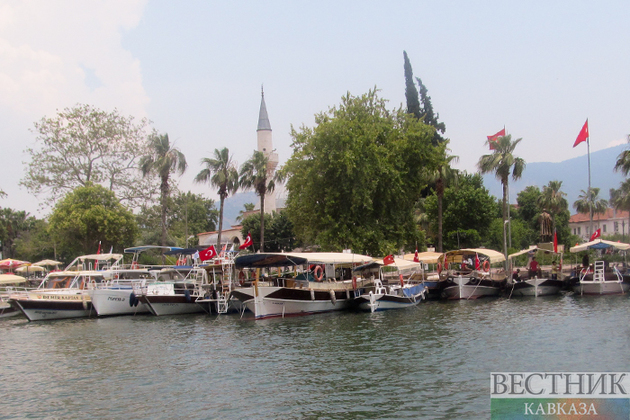A mix of soaring inflation and a currency that's lost nearly half its value has created a cost of living crisis in the country. Inflation surged to 48.7% in January, after reaching 36% in December. But some economists think the actual rate could be much higher, BBC writes.
"There are groups of academics who have come up with a technical measure of inflation. Their measurement was close to 60% [in December]. This creates a huge burden on society at large," said Durmus Yilmaz. He served as Turkish central bank governor between 2006 and 2011. Just days before January's inflation data were released on Thursday, President Recep Tayyip Erdogan fired Sait Erdal Dincer, the head of Turkey's statistics agency. Local media reported the decision was fuelled by the president's dissatisfaction with a worsening economic situation, and a desire to seek re-election next year.
In two weeks, Turkey's central bank will meet to discuss strategies for easing the pain on households. But policymakers are unlikely to pursue the usual method of cooling inflation with higher interest rates. That's because President Erdogan believes that higher rates cause inflation, a view that runs contrary to conventional economic theory.
The high prices and depreciating currency have put a tight squeeze on household budgets. In December, the lira's plunge forced grocery stores to re-price goods on the shelf almost every day. And one woman, Montoya, who goes to university in Istanbul, said she decided to rent her extra bedroom to tourists to be able to make rent payments each month: "I can't do anything else. Yesterday I went to the market and one bag is 300 lira. One month ago it was 150".
Tourism boost?
A favourable exchange rate has made Turkey a more attractive holiday destination for people in other parts of the world. Before the coronavirus pandemic, in 2019 tourism brought $34bn into Turkey. And though lockdowns and travel restrictions pummelled the sector in 2020, it bounced back in 2021. Arrivals jumped 85.5%, though revenue was still a third lower than it was pre-pandemic.
Sebnem Altin leads group tours across the country for the Grand Circle Travel company. She said there are bookings, but she believes the recovery is still fragile: "This past season, people could just cancel their tours at the last minute and agencies are quite flexible with it. For that reason, even though we have bookings and everything looks really beautifully rosy for the year coming up, we can never be sure that these bookings will be realised".
Tourism makes up about 13% of Turkey's overall economy. The country was the sixth-most popular tourist destination in 2019, according to the World Trade Organisation. And, even then, it said the favourable exchange rate was a key factor in attracting tourists.
If the industry continues to recover as travel restrictions continue to ease this year, it could provide wider economic benefits for Turkey, according to Roger Kelly, a lead regional economist at the European Bank for Reconstruction and Development. One of the underlying structural problems for the economy is the nation's current account deficit, which means the value of goods and services Turkey imports is more than exports.
More tourism revenue would help reduce that deficit, Kelly said. "Clearly, if you've got good tourism revenues coming in, this helps reduce the current account deficit, which makes financing it straightforward, which helps support the lira. It means your inflation problem is reduced, because a weaker lira helps to feed inflation. So, from that perspective, if you have a reasonably strong tourism season, this helps to support the lira and helps bring down inflation".






